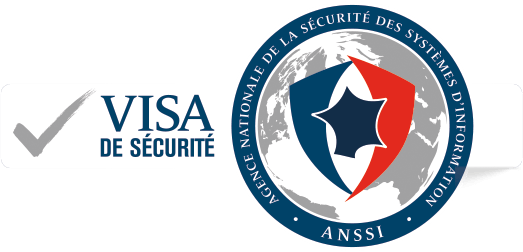Share :
C-IAM offer
The increasing digitalization of society has pushed companies to reinvent themselves by multiplying their sales channels.
In addition to physical stores, companies have invested heavily in setting up new points of contact such as e-commerce sites, mobile applications, call centers and so on.

This multi-channel strategy has presented companies with a major challenge. Indeed, each channel/service develops its own “customer” base and manages it in an autonomous and decentralized manner. As a result, companies end up with a multitude of compartmentalized, heterogeneous “customer” databases with poor data quality.
At a time when data is an essential lever for value creation and new regulations are increasingly protecting citizens, it is essential for any company wishing to deploy a customer-centric strategy get to know our customers better, so that we can offer them services/products tailored to their needs. This requires the implementation of a centralized, decompartmentalized Customer Identity and Access Management (Customer IAM) platform.
C-IAM, what's this about?
The aim of C-IAM (Customer Identity and Access Management) is to build a centralized foundation for customer data and management rules, facilitating the sharing and enrichment of information. This foundation must offer or expose, through different services, functionalities for lifecycle management, single sign-on, authorization and consent management. Among the expected modules are :
The aim is to centralize customer information, and to be able to share this information with the various IS components, either through synchronization mechanisms, or through data exposure mechanisms.
This module automates self-registration, on-boarding and off-boarding of customers, self-service, progressive profiling and other processes.
- Single Sign-On (SSO): a single authentication to access all applications – that’s the promise of SSO. Implementing such functionality can be based on multiple approaches: Web SSO, identity federation (SAML2, OpenID Connect, WS-*, etc.), which can be combined to meet different needs. By reducing the number of passwords, the deployment of an SSO solution strengthens access security while improving the user experience;
- Multi-factor authentication: this enhances security during authentication by using a second factor (OTP via SMS, push on a mobile application, etc.), thus guaranteeing the validity of the authentication provided by the user;
- Password self-service: enables users to be autonomous if they lose or forget their password.
- A preference center (Opt-In) to allow customers to autonomously manage their consents;
- Capture consent from touchpoints (e-commerce sites, mobile applications, etc.);
- Automated renewal of consents following changes in conditions.
The C-IAM base is not necessarily built on the basis of a single product and is not intended to replace CRM solutions, but it reinforces or complements the existing bricks in the Information System in order to cover all needs.
CIAM's offer at Synetis
- More than 10 consultants working on C-IAM assignments;
- Active partnerships with major market players such as Ilex, Okta, Ping Identity, ReachFive, SAP Gigya, etc. ;
- Technical certifications acquired from publishers ;
- More than 10 projects and consulting studies underway as of 01/08/2022, projects of all kinds (scoping, audit, integration) with a commitment to results (fixed-price) or means (time and materials).




